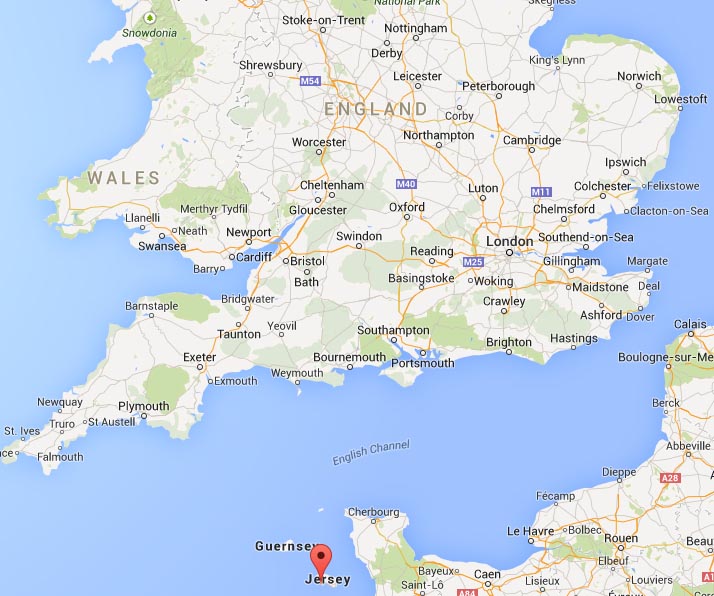
A Jersey Protected Cell Company (PCC) is an innovative alternative to PCC’s found in other jurisdictions. Two types of cell companies are available in Jersey: The Protected Cell Company (PCC) and the Incorporated Cell Company (ICC). This article focuses on the PCC because it has more benefits than an ICC.
The concept behind the PCC is that each cell is a separate cubbyhole. That is, when someone sues one of the cells, the other cells are separate from the liability of the one cell that is being sued.
The law creating PCC’s began with the Jersey Companies Law of 1991 which was amended in 2006 introducing the PCC and in 2008 increasing the flexibility for PCC’s.
Foreigners can create a PCC with numerous cells where the members (shareholders) are all foreigners with assets in different countries.
Benefits
A Jersey Protected Cell Company (PCC) can benefit from the following:
• Foreign Owners: Foreigners can create PCC’s and become the entire membership or own all of the shares.
• No Taxation: All income derived outside of Jersey is free from corporate and income taxes. However, U.S. taxpayers and everyone paying taxes on global income must declare all income to their governments.
• One Member/Shareholder: Depending on the initial company or corporate structure, only one member or shareholder is required.
• Limited Liability: The assets of the core cell company and each cell is protected from the liabilities of the other cells.
• Protection from Creditors: The creditors of one cell cannot go after the assets of the core cell company or any of the other cells.
• Flexibility: PCC’s may create numerous separate cells involving different members, directors, assets, types of businesses, and locations.
• English: As a British Territory, Jersey’s official language is English.

Protected Cell Company (PCC) Name
Jersey PCC’s are required not to select a company name exactly alike or closely resembling another Jersey legal entity’s name.
Every PCC must use a company name ending with the words “Protected Cell Company” or its abbreviation of “PCC”.
Definition of a PCC
A cell company can create one or more cells holding assets and having liabilities different from assets and liabilities of the cell company and any other cells which the cell company may create. Typically, each cell conducts a distinct and separate business than the other cells.
Flexibility
Historically, cell companies were created in the insurance industry to operate under the umbrella of the core insurance company. Each cell was created for a specific insurance product (like fire insurance, or health insurance, or life insurance, etc.). In addition, cells were created for each policyholder within the insurance product. For instance, life insurance XX with separate cells for each policyholder.
Jersey amended its laws to provide increased flexibility for cells. A core cell company in Jersey can have cells for separate investments, types of business activities, different real estate holdings, etc.
Separate Legal Entity
The PCC is treated by law as a separate legal entity similar to different corporations under one umbrella (the core cell company).
Every cell has a separate Memorandum and Articles of Association with its own members (or shareholders) and conduct separate business activities.
A cell can dissolve and wind up without affecting the other cells or the core cell company.
Cells are not subsidiaries of the core cell company. One cell can invest in any other cell such as owning shares as the cell’s Articles of Association allows. However, cell companies may not invest in the core cell company.
Limited Liability
Since each cell is considered a separate legal entity from each other, liabilities of one cell cannot affect the assets of another cell. Creditors of one cell cannot seek reimbursement from the core cell company or any of the other cells.
Separation of Assets
The directors must separate all assets of the PCC from the core cell company and other PCC’s. Directors must maintain records identifying all assets as separate from other cells and the core cell company.
Conversion
A PCC can convert to a general (non-cell) company or into an ICC.
Contracting with Third Parties
Each cell has the ability to enter into separate contracts with third parties as any legal entity.
Difference between ICC and PCC
ICC’s consist of individually incorporated cells which are separate legal entities where the core cell company doesn’t have to have any of the same shareholders.
PCC’s may be treated by law as separate legal entities, but are not separate corporations.

Creating a Cell Company
The formalities are the same as with any other Jersey company except the cell company declares itself as a PCC in its Memorandum. Then, a special resolution is passed creating a cell with a distinctive name so as not to be confused with other cell’s names. The name “Protected Cell” or abbreviation “PC” must be used at the end of every cell.
The cell company then files the resolution with the Registrar of Companies (“Registrar”) which issues a Certificate of Recognition for the PC.
Every PC must use the same secretary and registered office of the core cell company.
Cell Resolution
The special resolution must contain a Memorandum and Articles in Relation to the PC which is similar to a corporation’s Articles of Association including provisions for appointing and resignations of members, bankruptcy, dissolution or winding up and expiration of a fixed period and other important points.
Board of Directors
The core cell company appoints the initial directors. After registration, the PC can remove and replace directors as provided in the core cell company’s Articles of Association. While PC’s and the cell core company can have the same directors, the PC may have a different Board of Directors.
Directors of each cell do not owe any liabilities or duties towards other cells or the core cell company. Nor are directors of one cell entitled to the records of another cell.
Directors of the PCC must make sure that:
• Every PC’s assets and liabilities are kept separate and identifiable from the other cells and from the core company; and
• Contracts on behalf of a PC entered into by the PCC must specify to all other parties that the PCC is acting on behalf of the individual PC.
Failure to comply with the above-mentioned duties is an offense. Laws protecting third parties from wrongful or fraudulent trading activities could hold the directors personally liable for any resulting damages or the cell’s liabilities.
Accounting
The PC’s directors must prepare the accounts for that cell.
The core cell company must keep records of members for every separate cell and file an annual return for each cell.
Protection from Creditors
Creditors with claims against a specific PC must seek remedy from the assets of that PC and will be barred from seeking redress from other PC’s and the core cell company (PCC).
If a creditor obtains assets belonging to another cell or the core company when pursuing remedies against one specific cell, the law requires the creditor to repay the PC or the PCC including the value of the benefit improperly obtained.
Insolvency
If a PC become insolvent, it will not affect the other cells or the core cell company unless the Articles of Association of the PCC provides otherwise.
Members
A minimum of one member or shareholder is required to form a Jersey company before it declares itself as a PCC. Members can be from any country and residing anywhere.
Registered Agent and Office
Every PC must use the same registered agent and local registered office address as the core cell company (PCC)
Taxes
As long as no commercial activities occur inside Jersey, there are no corporate taxes. Non-resident members and shareholders are not subject to income taxes upon receiving income from the PCC or any of its PC’s.
Note: U.S. residents and all others subject to taxes on their worldwide income must report all income to their governments.
Conclusion
A Jersey Protected Cell Company (PCC) can obtains these benefits: total foreign ownership, no taxes, limited liability, protection from creditors, flexibility, one member/shareholder, and English as the official language.


